What is dyslexia? Everything you need to know about the condition
How to diagnose, manage and understand the needs of a child with dyslexia
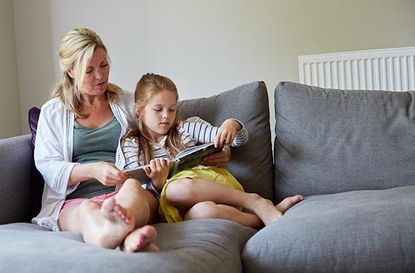

Dyslexia is a common learning difficulty which can see people with the condition struggle to read, write or spell.
Here, we look at everything you need to know about the condition, and how to help your child if they've been diagnosed.
What is dyslexia?
Categorised as a 'specific' learning difficulty, dyslexia causes problems with things such as reading, spelling and writing, and even maths.
Around 1 in 20 people are expected to have dyslexia.
How does dyslexia affect children?
Dyslexia affects children to different degrees.
While one child might find that just their spelling is affected, others may struggle to read and write too and have varying fluencies in the written word.
Dyslexia is not related to a child's intelligence, and can affect children of a range of abilities.
GoodtoKnow Newsletter
Parenting advice, hot topics, best buys and family finance tips delivered straight to your inbox.
'People think it is a reading problem - it can be but it is more than this - it affects spelling, writing, concentration and ability to complete things in a time frame as well,' explains dyslexia specialist Debbie Abraham.
'It is just a letter reversal problem - mixing up b's and d's, although some children may have that issue, it isn't always the case.'
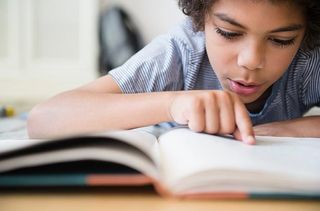
What are the early signs of dyslexia
'A key sign is that the child doesn't know how sounds and letters match up which means that they have trouble reading and spelling - the specific term for this is phonological awareness,' says Debbie.
'A parent may notice that their child isn't reading at the same level as classmates, and they may be struggling with picking up reading skills. They may also notice that their child doesn't remember their spellings and that they are the child getting 1/10 in the weekly spelling test.'
'A child may also experience a lack of concentration. They may not writing very much, they might not finish work in the allocated time, and may be being loath to do homework,' she continues.
'In more extreme cases the child may have high levels of anxiety, not want to go to school.'
How is dyslexia diagnosed?
'Dyslexia is easier to manage if diagnosed early. If you suspect your child has dyslexia, firstly look into the problem with the school, but perhaps with a private educational psychologist/specialist teacher if the school isn't forthcoming about looking into it,' says Debbie.
'When they know, have a school meeting to ensure their child is supported properly in the classroom. Their child will benefit from following a specialist dyslexia programme - either at school or at home if the school won't do this.'
'Parents should also ensure that their child gets to do something they really enjoy so that they can keep up their confidence and self esteem,' she adds.
'Parents really have to become their child's advocate, so if they feel the school is setting too much homework then the parent should say so and get this stopped.'
A directory of chartered psychologists on the British Psychological Society's website contains an independent catalogue of experts who can diagnose your child.
Treatment for dyslexia
'It's simply not true that dyslexic students don't try hard enough,' says Debbie. 'They have to be taught strategies to help them with their difficulties and then they shine.'
Parents should not give up on reading with their children. Parents should read to children, and play audio books for a child with dyslexia. They should also read aloud to build reading accuracy, speed and expression, and list a vocabulary of recognized and understood words.
Children with dyslexia should also be given access arrangements so that they can succeed in school exams. When formally diagnosed with the condition, students can be placed in a separate location, be given extra time or other arrangements can be made to accommodate their needs.
Local dyslexia associations (LDAs) may also provide extra support for you and your child when it comes to navigating the condition.
Do you have a child with dyslexia? What techniques have you found helpful? Let us know in the comment box below.
Trusted, informative, and empathetic – GoodToKnow is the ultimate online destination for mums. Established in 2007, our 15-year-strong archive of content includes more than 18,000 articles, 1,500 how-to videos, and 7,000 recipes.
-
 Giving teens ‘space and opportunity’ to be independent helps them thrive according to an educator - here’s 3 top tips to get started
Giving teens ‘space and opportunity’ to be independent helps them thrive according to an educator - here’s 3 top tips to get startedTeenagers need to be given space and opportunity to thrive - a sense of agency will set them up for success in later life, according to an educator.
By Lucy Wigley Published
-
 Psychologist Dr Becky reveals top screen time rules she uses for her own kids and admits getting the balance right is a 'struggle' - and we totally relate to #3
Psychologist Dr Becky reveals top screen time rules she uses for her own kids and admits getting the balance right is a 'struggle' - and we totally relate to #3Psychologist Dr Becky chats top screen time rules for her own children, and how even she struggles to get the right balance. Her third rule is relatable to parents everywhere.
By Lucy Wigley Published
-
 When will A-Levels be scrapped? Everything to know about the Advanced British Standard
When will A-Levels be scrapped? Everything to know about the Advanced British StandardEverything you need to know about the new qualifications that are set to replace A-Levels.
By Ellie Hutchings Published
-
 When do kids go back to school after the Christmas holidays? 2024 school holiday and term dates
When do kids go back to school after the Christmas holidays? 2024 school holiday and term datesThe key dates that you’ll want to pop on your calendar
By Ellie Hutchings Last updated
-
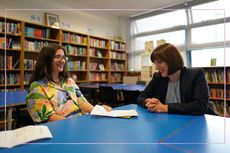 How to appeal A Level results and when does clearing open?
How to appeal A Level results and when does clearing open?Find out how to appeal A Level results and when does clearing open with this helpful guide to get you through results day
By Grace Walsh Published
-
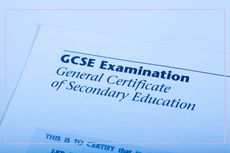 GCSE results 2023: When are GCSE certificates issued?
GCSE results 2023: When are GCSE certificates issued?GCSE results are a nerve-wracking time, but once out the way you might find yourself asking when are GCSE certificates issued?
By Ellie Hutchings Last updated
-
 What to expect on A level results day - a parents guide
What to expect on A level results day - a parents guideWe explain what to expect on A level results day, how to understand their results and what to do if they didn't get what they wanted
By Gemma Chandler Published
-
 When do kids break up from school? Summer holidays 2023
When do kids break up from school? Summer holidays 2023It's the final term before the long summer break!
By Emily Stedman Last updated
-
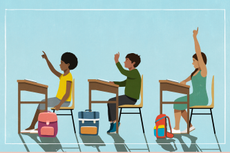 How to appeal a school place: what to do if your child doesn’t get the school you wanted
How to appeal a school place: what to do if your child doesn’t get the school you wantedGetting your child into the school you really want for them can be a nail-biting time for parents. Here's how to appeal if your child doesn't get in...
By Emily Stedman Published
-
 179 fantastic facts for kids to really blow their mind - from sharks and cats to space and tornadoes
179 fantastic facts for kids to really blow their mind - from sharks and cats to space and tornadoesDazzle and amaze little ones with these mind-blowing facts… They’re so good they’ll leave grown-ups speechless too!
By Joanne Lewsley Last updated